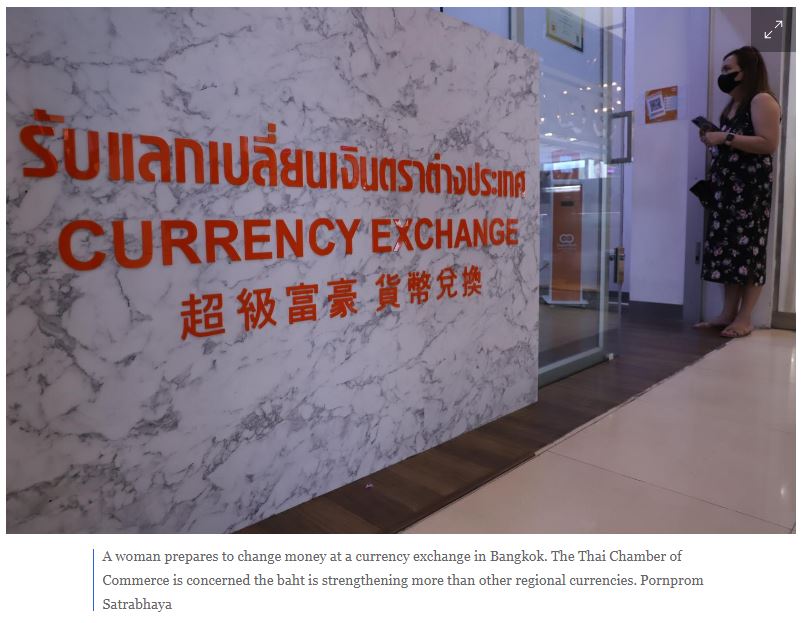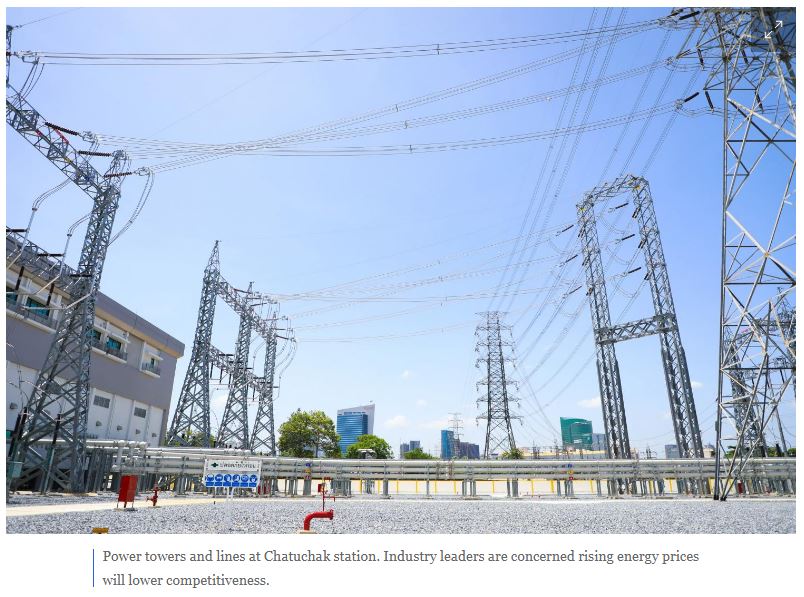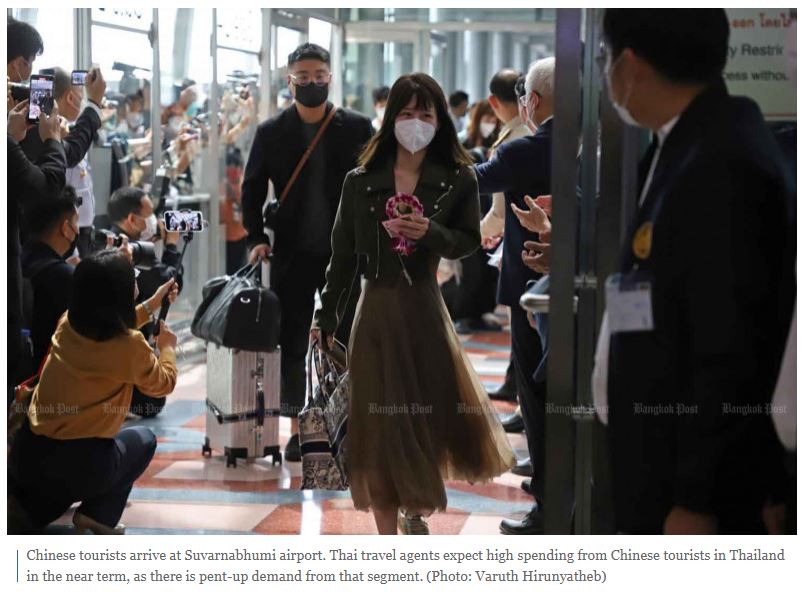Thailand: Evaluating the China effect
One-third of the world economy may slide into a recession this year, but the outlook for China remains more murky.
The gloomy economic forecast was made by the International Monetary Fund (IMF), based on concerns over an economic slowdown in the US, the EU and China, but some analysts believe 2023 will be a year of economic recovery for the world’s second-largest economy.
A mélange of factors including a surge in Covid-19 infections in China and Beijing’s monetary policy and decision to reopen the country for cross-border travel have analysts predicting Thailand will both gain benefits and face new challenges this year.
 RECESSION UNLIKELY
RECESSION UNLIKELY
Kampon Adireksombat, first senior vice-president at Chief Investment Office (SCB CIO), the investment analysis division of Siam Commercial Bank, said it is “very unlikely” the Chinese economy would enter into a recession this year.
“The Chinese economy already bottomed out in the second half of 2022 because of their zero-Covid policy,” he told the Bangkok Post.
“The reopening rules, combined with easing monetary, fiscal and regulatory measures, will likely result in an economic rebound, especially in the first half of 2023. Rising Covid cases after the reopening could force some business activities to halt, but we believe it would be on temporary basis.”
SCB CIO expects China to further loosen its monetary policy by cutting the minimum reserve ratio required for commercial banks during the first half of 2023. The People’s Bank of China is also projected to implement measures that provide support for specific businesses, especially vulnerable enterprises.
Mr Kampon said China’s recent reopening for cross-border travel and easing of monetary policies are not only major positive factors for its domestic economy, but also other countries that have high exposure to trade, investment and tourism with China.
“In 2023, we believe China reopening for domestic and international travel is the most important easing measure that will likely benefit the Thai economy,” he said.
With the return of Chinese tourists, the Thai tourism industry and related businesses will have another supportive factor. Given that tourism and related sectors are labour-intensive industries, the tourism recovery should also support domestic demand, said Mr Kampon.
Kasikorn Research stated last Friday it upgraded its Thai GDP growth forecast for this year to 3.7% from 3.2%, with China’s recent reopening expected to benefit Thailand’s tourism and export sectors.
“We believe China’s plans to expand businesses abroad will be the second priority for the government and firms, as they may want to stimulate domestic investment to shore up their own economy first,” said Mr Kampon.
 CURRENCY CONCERN
CURRENCY CONCERN
Sanan Angubolkul, chairman of the Thai Chamber of Commerce, said the chamber sees the impact of China’s anticipated slow growth as unlikely to have a negative effect on Thailand’s international trade performance.
He said China’s policies to ease stringent zero-Covid rules will expedite a Chinese economic recovery, with growth of 5% possible from the second quarter of this year onwards.
“Our greatest concern is the frenetic volatility of the foreign exchange rate, especially for the baht, which is strengthening more than other regional currencies,” said Mr Sanan. “Thai entrepreneurs have to prudently plan and manage foreign exchange risks to curb the impact on their businesses and trade.”
He predicted Thai exports would contract in the first two quarters this year because key trading partners would see their economies shrink. Exports are likely to turn positive in the third and fourth quarters, said Mr Sanan.
The Joint Standing Committee on Commerce, Industry and Banking estimates Thai exports would eke out growth of 1-2% this year, he said.
Poonpong Naiyanapakorn, director-general of the Trade Policy and Strategy Office (TPSO), said although China’s economy is expected to post slow growth because of zero-Covid measures and an ailing property sector, the office remains bullish on export prospects to China.
A recent study by TPSO found the Chinese reopening on Jan 8 is expected to benefit Thai exports bound for China, especially fruit, food, beverages and fashion products.
Shipments of medical and healthcare products also have promising prospects, he said.
According to Commerce Ministry data, Thailand’s outbound shipments to China contracted by 6.5% in the first 11 months of last year, led by fruit, plastic pellets, computers and computer parts, chemicals and rubber.
MODERATE IMPACT
The research team for financial services firm J.P. Morgan believes Covid infections in China will peak in January, but an economic recovery there will start in the second quarter.
“Even though Covid-19 infections in China rose rapidly after the country was reopened faster than expected, we expect the impact to be transitory,” the team told the Bangkok Post in a statement.
“In fact, these early infections that will likely peak in January are expected to bring forward the timing of China’s economic recovery to the second quarter.”
According to the team, the recovery should spur demand for tech products such as smartphones, in turn bolstering the trade flows of tech-related components between China and Thailand.
Vinayaka Venkatesh, senior market analyst for Asia-Pacific at tech market research firm IDC, said a surge in infections in China and the prospect of an economic slowdown are likely to have a moderate impact on tech product supply, as the majority of countries in the region rely on China.
He said the Thai market has been hit by higher interest rates and increases in consumer product prices, which leads to weaker demand for tech products.
“We expect a slowdown in demand as local and global macroeconomic conditions hurt consumer sentiment and buying power,” said Mr Venkatesh. “It doesn’t help that supply of lower-cost smartphones has shrunk significantly.”
NO CONCERN OVER SPENDING
Sisdivachr Cheewarattanaporn, president of the Association of Thai Travel Agents, said the tourism industry can expect high spending from Chinese visiting Thailand in the first quarter, with little impact from the economic slowdown predicted by many analysts.
Mr Sisdivachr said he believes Chinese still have confidence in travelling to Thailand, and they might even spend more than before the pandemic during the first quarter as tourists with purchasing power have waited for three years to travel abroad.
The main travel segment in the early stages of China’s reopening will mostly be independent travellers and working adults aged younger than 40, as well as the wealthy, he said.
Operators should prepare by providing quality services to attract Chinese tourists, including attractions, tour guides, bus operators, boat operators, hotels and restaurants, said Mr Sisdivachr.
“This time is different than the global financial crisis in 2008-2009, when there were not many Chinese tourists,” he said.
According to the Tourism and Sports Ministry, there were only 815,708 arrivals from China in 2009.
Mr Sisdivachr said he expects the Chinese government to allow tour groups to resume travel in the second quarter this year.
Chinese travel agents are visiting Thailand to inspect attractions and other services in preparation for the resumption of tour group services in the future, he said.
Mr Sisdivachr said the Chinese market can grow considerably when Beijing finally withdraws the RT-PCR Covid test requirement, while airfares should eventually decline.
Tour agents should be able to gain even higher profits from Chinese tour packages than during pre-Covid years, he said.
Yuthasak Supasorn, the Tourism Authority of Thailand governor, said even with one-third of the global economy forecast to suffer from a recession, the Thai tourism industry has some advantages that should maintain demand.
For instance, high energy prices in Europe may cause people to seek long-stay destinations elsewhere, he said.
To manage these risks, Mr Yuthasak said the tourism industry must pivot to countries that are expected to be less affected by the economic slowdown.
TOUGHER COMPETITION
The Federation of Thai Industries (FTI) is worried about competition in the global market as economies trend down.
Many countries are dealing with an economic slowdown, resulting in a drop in demand for products and services. Supply now exceeds demand in the global market, said Kriengkrai Thiennukul, chairman of the FTI.
If China exports more products, competition will intensify, making other nations more concerned as they are hit by sluggish international trade, he said.
“After reopening, China will return to competing with other countries,” said Mr Kriengkrai. “Exporting countries, including Thailand, will face a risk because we believe China will increase manufacturing for exports to make up for losses from when the country was closed.”
When China had strict zero-Covid rules, it was an opportunity for other nations to increase production and export products, he said. This situation is going to change, said Mr Kriengkrai, as China must step up efforts to restore its economy.
The IMF prediction that the Chinese economy may grow at or below the global growth average for the first time in 40 years is a concern because an economic slowdown in China may affect the global economic recovery, he said.
J.P. Morgan analysts are more optimistic about the Chinese economy, upgrading its growth forecast this year to 5.4% from 4.7-4.8%.
The FTI is concerned Thailand may lose its competitiveness because of higher operating costs, driven by an increase in the minimum daily wage and more expensive power bills. Higher energy prices will cause Thai manufacturers to increase product prices, making them less competitive with rivals.
Though the Thai government decided to lessen the power tariff hike for businesses from January to April this year, some firms consider the power bills as expensive, said the FTI.
Officials initially planned to increase the power tariff by 20.5% from 4.72 baht per kilowatt-hour (unit), but cut the increase to 13%, with the new power tariff at 5.33 baht per unit. The private sector requested no change to the previous tariff.
“Higher product prices are unavoidable, meaning less sales, especially as people are still affected by inflation,” said Mr Kriengkrai.
“Manufacturers shifted to renewable energy and automated systems to cut costs, but energy bills remain a serious concern.”
Source: https://www.bangkokpost.com/business/2483490/evaluating-the-china-effect


 English
English




